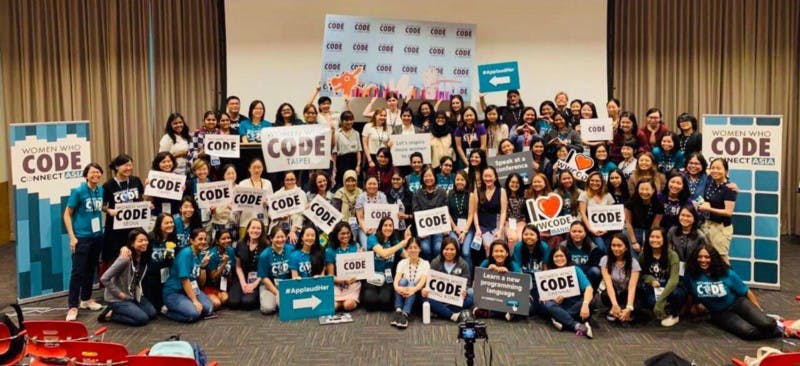The first Women Who Code Connect Asia conference was held in Singapore on August 31, 2019. Joined by my fellow Palowans, Ariel and Andre, it was my first time attending a conference and I was glad I did it! It was also attended by different WWCode members all over Asia such as Singapore, Malaysia, Philippines, Japan, South Korea, Taiwan, India, China, and Australia.
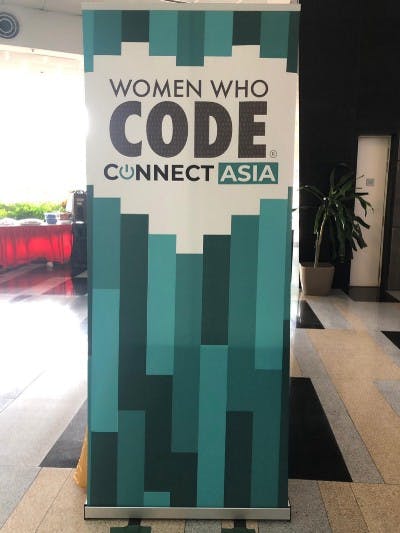
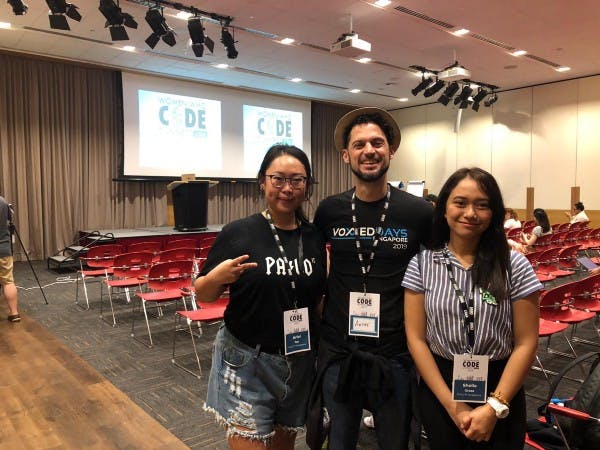
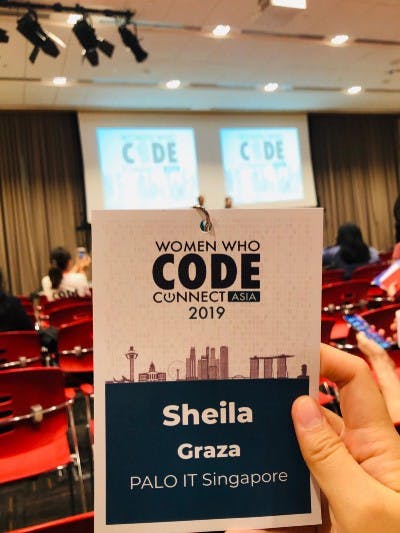
The event was opened by Amanda Hill-Attkisson, the Program Innovation Director of WWCode, who shared the Global Keynote. She introduced WWCode and its vision, networks, highlights, and upcoming events.
Women Who Code is a non-profit organisation founded in Los Angeles with a special set of programs curated for engineers to build on the careers they want. They produce free technical events, training, workshops, hackathons, and conferences. Becoming a part of the organisation also means gaining access to programs and services designed to support women in the technology world.
“We envision a world where women are proportionally represented as technical leaders, executives, founders, VCs, board members, and software engineers. “ — WWCode Vision
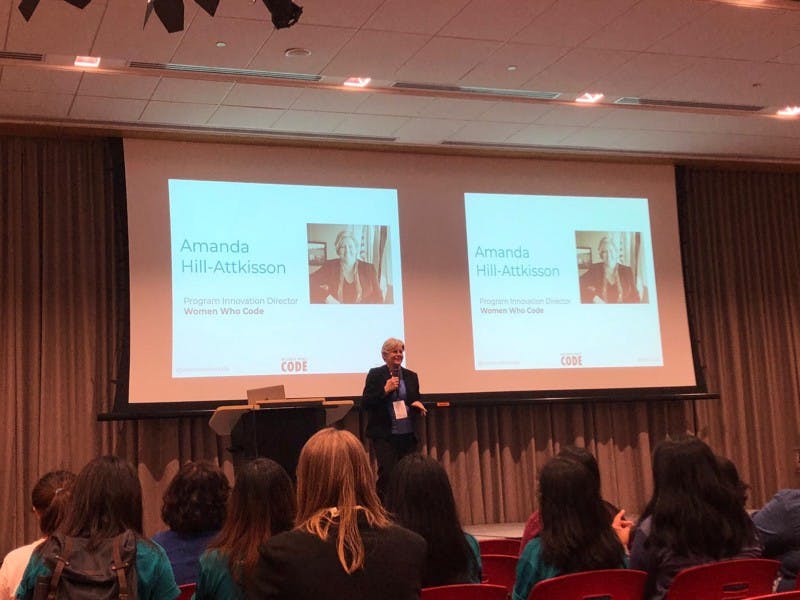
The next keynote was about Community, which was presented by Chee Yim Goh, WWCode Director in Kuala Lumpur. The best part about connecting with other people is the exchange of knowledge. She was inspirational in sharing on how individuals can change their community, and vice versa.
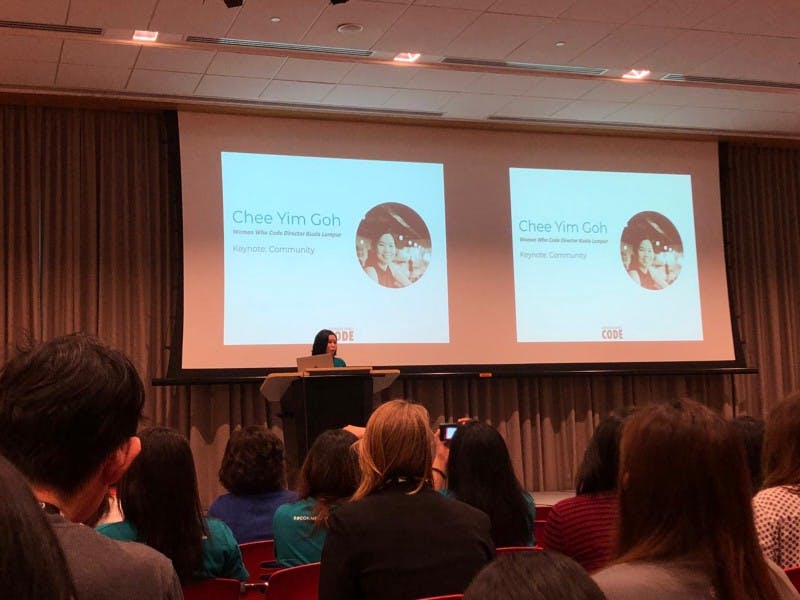
The event soon broke off into different sessions and workshops, and we were free to choose which one we were most interested in. Since I am more into Cloud and Infrastructure, I chose sessions about “Cybersecurity”, “Fault Tolerance in Wireless Networks”, “Hybrid Cloud”, “Creating Art with CSS”, “Data Pipelines” and “Serverless with Containers”.
The first session I attended was “Why Cybersecurity is crucial for developers” presented by Magda Lilia Chelly, a Cybersecurity Evangelist. She shared about encryption, which is the best way to keep your data protected from black hat hackers. She also talked about the 3 pillars that should work together to create strong Cybersecurity in the organisation: People, Process, and Technology. Besides these key aspected, she also highlighted the significance of the Data Flow diagram, DAST vs. SAST, and when we should do Penetration Testing. Perhaps, the most important thing I’ve learned from this session was that it is our responsibility to keep our data secured. #ITSTARTSWITHYOU
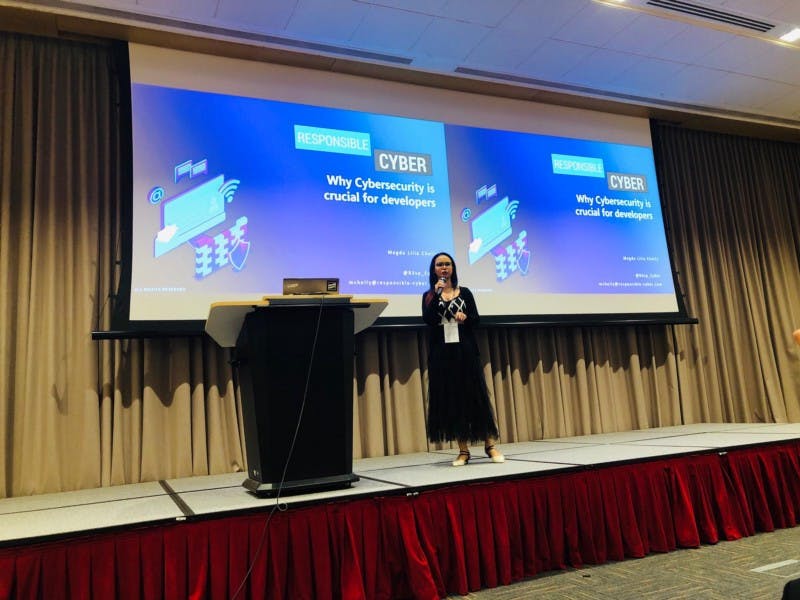
The second session was about “Fault tolerance in wireless networks for rescue operations” by Amulya Sannergowda. She shared about a feasibility study of routing and QoS. Here, I realised that I needed to read more about networking to refresh and expand my knowledge in this area.
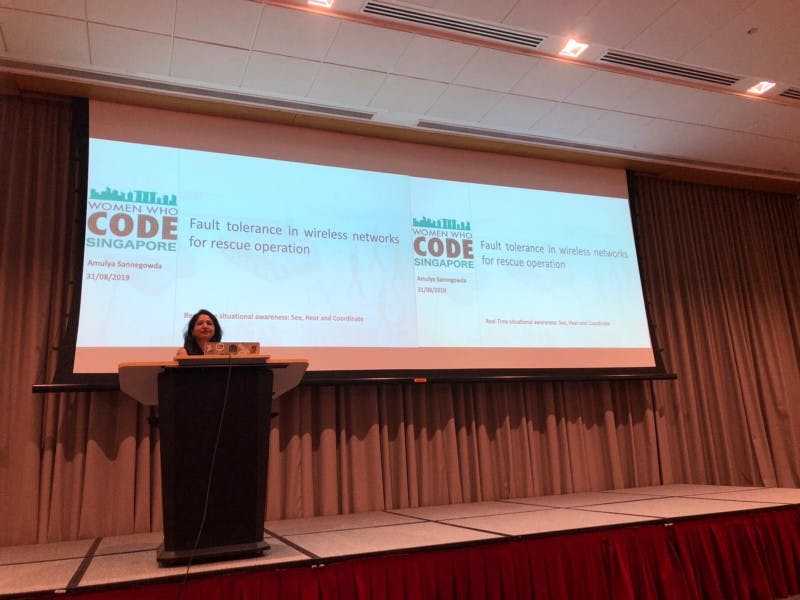
The third session — The Journey of Hybrid Cloud, was the programme that excited me the most. This was presented by three ladies from India: Ramya Victor, Ranjani Swaminathan, and Shwetha Lakshman Rao. The first part of the session was conducted by Ramya. She talked about what was life before and after Cloud, and the evolution of Hybrid Cloud, which is the combination of public and private clouds. The second part of the session was presented by Ranjani, who discussed present Hybrid Cloud use cases and challenges. The final part of the session was all about Edge Computing, which is the processing of data by the device itself, a local computer, or near the edge of your network where the data is being generated, instead of in a centralised data-processing warehouse. This was presented by Shwetha.
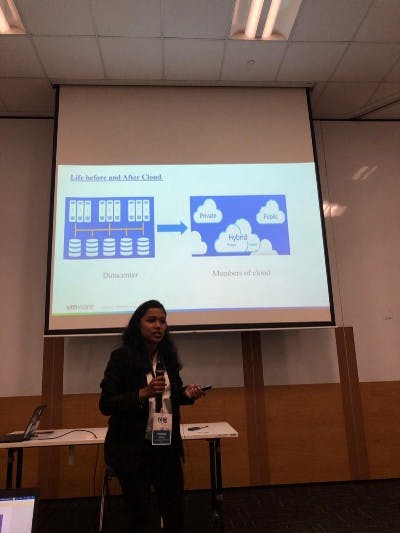
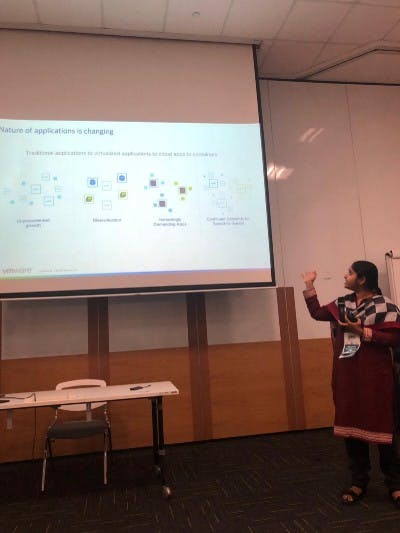
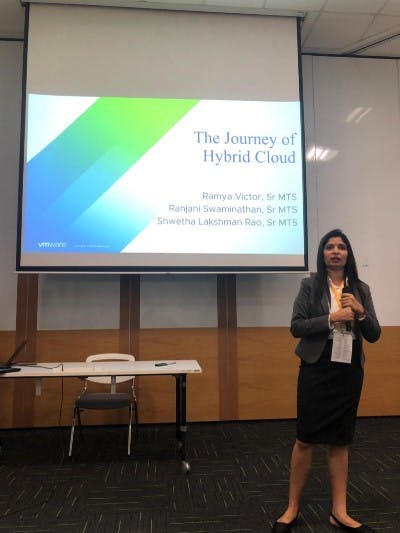
The next session I attended was “Creating Art with CSS” by Chen Hui Jin. I was amazed by her creativity and humour. This session taught me that nothing is impossible with CSS. Through the power of computation, we can create an image that seems like it was captured by a camera, limited only by our imagination.
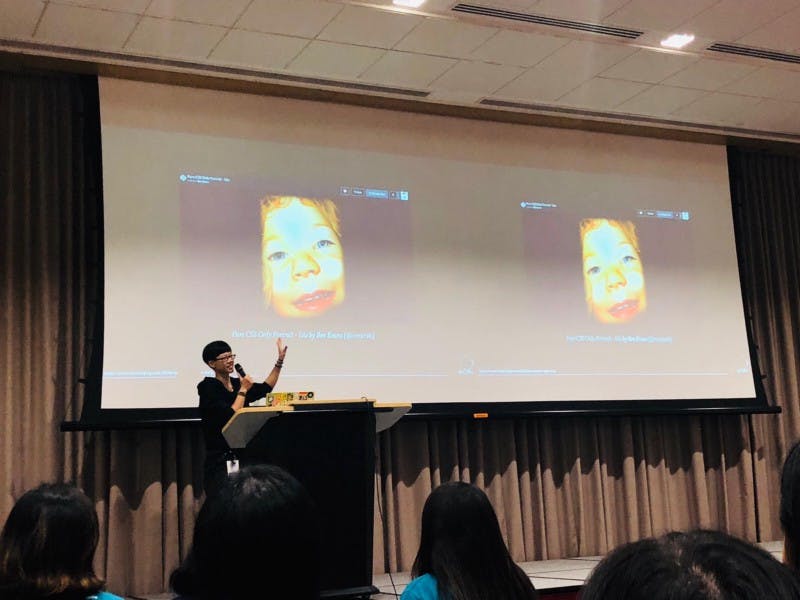
After a quick lunch break, I attended the Building Data Pipelines with Monitoring & Observability session by Jiaqi Liu. She shared about the ETL pipeline which extracts, transforms, and loads data into a warehouse. I learned that knowing your pipeline is healthy is not sufficient, you also have to be aware that the data being processed is accurate. Thus, building a data pipeline that supports interpretability and observability is very important.
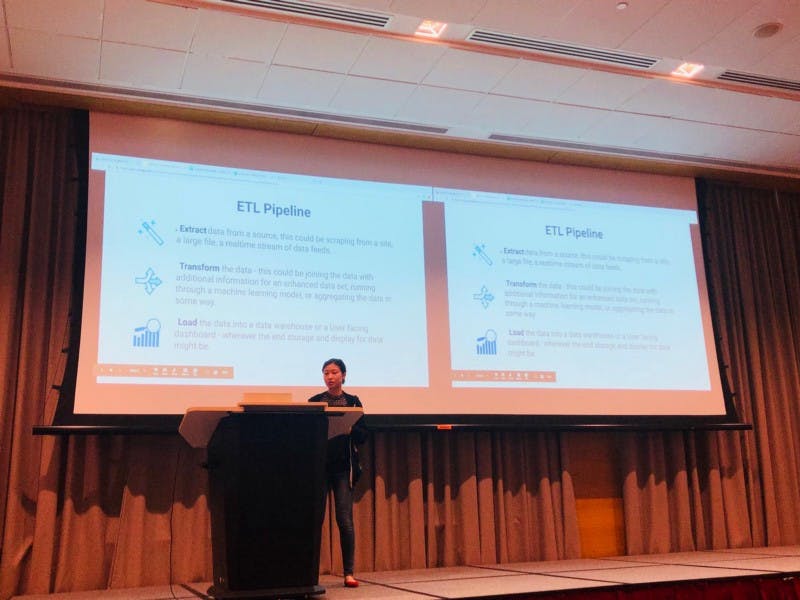
The next session was about Cloud Run: From Code to Serverless with Containers presented by Thirumalai Aiyalu, a Cloud Solutions Engineer from Google Cloud. Serverless means that you build your application with no Infrastructure Management and you only pay for your usage. He also discussed the advantages of using containers that support any language, library, binary, and ecosystem of base images. Containers are awesome but we need to make sure that we solve problems like scaling, scheduling, updates, service discovery, monitoring, health-checks, and orchestration, which can be delivered by using a platform like Kubernetes. He also introduced Knative, an abstraction on top of Kubernetes and an open-source project, which provides you with a set of building blocks to construct your own Faas/Paas.
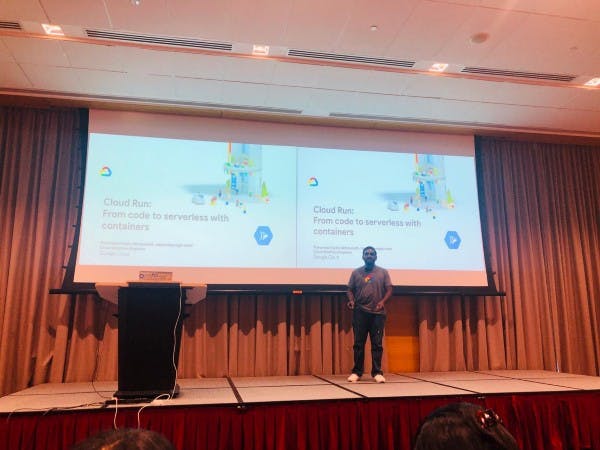
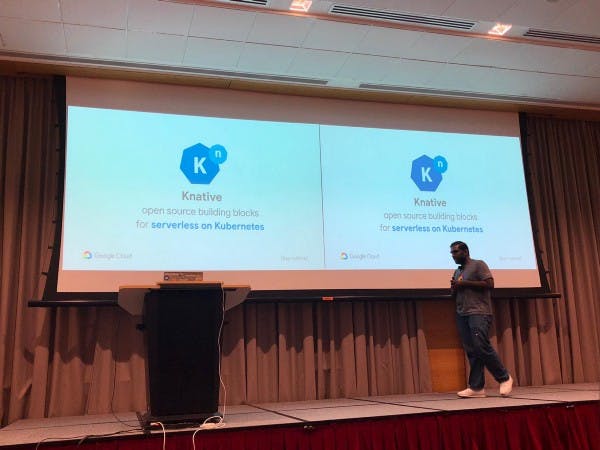
The conference ended with a Panel interview with Daphne Choong, CTO of Unixus Solutions, and Choy Peng Wu, CTO of GIC Pte Ltd. They were interviewed by Yue Lin Choong, Director of WWCode Singapore. They shared about their journey from when they were first starting up to where they were now. Their advice inspired me in so many ways and I feel empowered to apply this to both my professional and personal life.
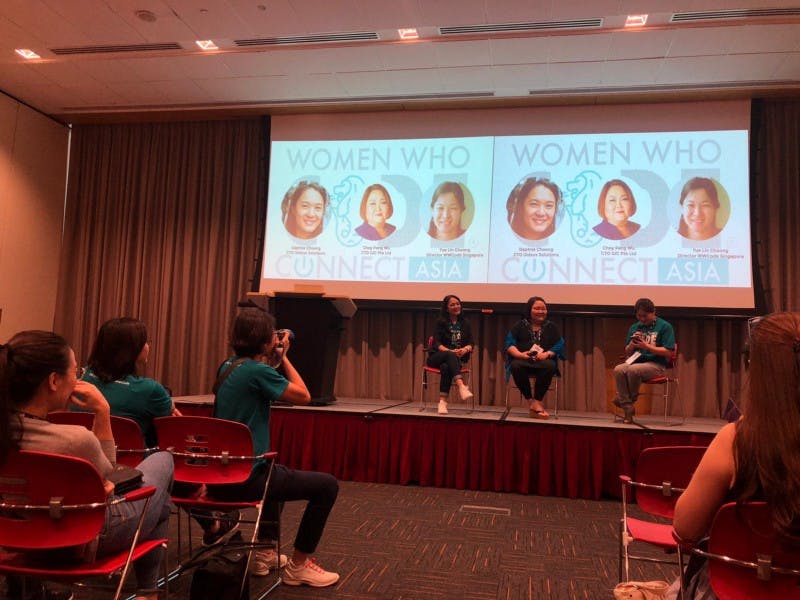
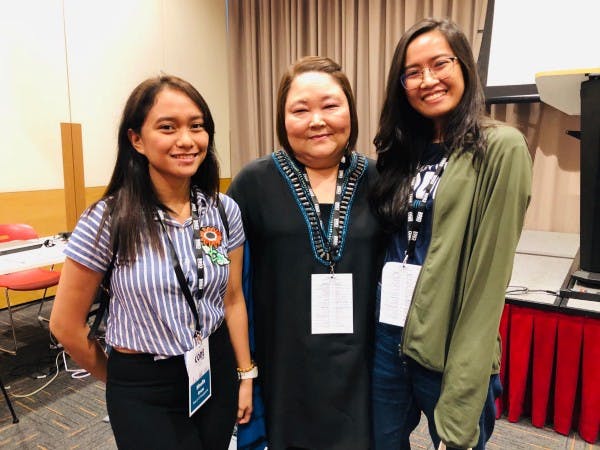
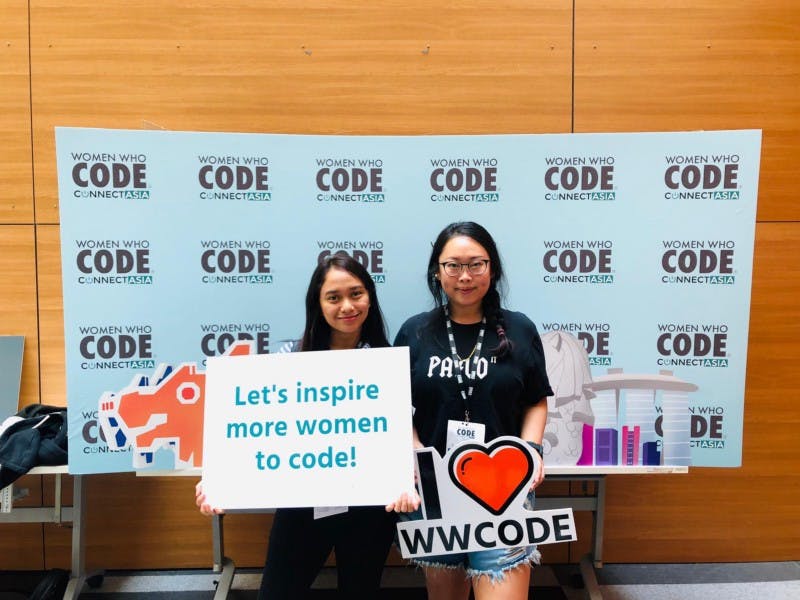
Reflecting on my experience and thoughts after this event, I realised how truly blessed I am to be in this field. But most importantly… we need more WOMEN in the technology world!
